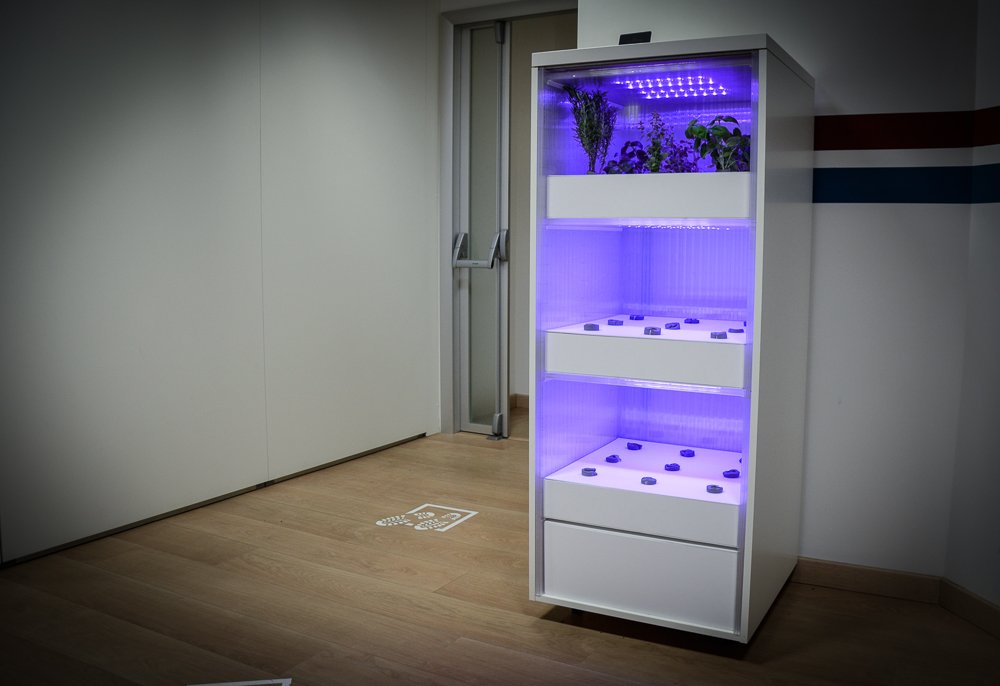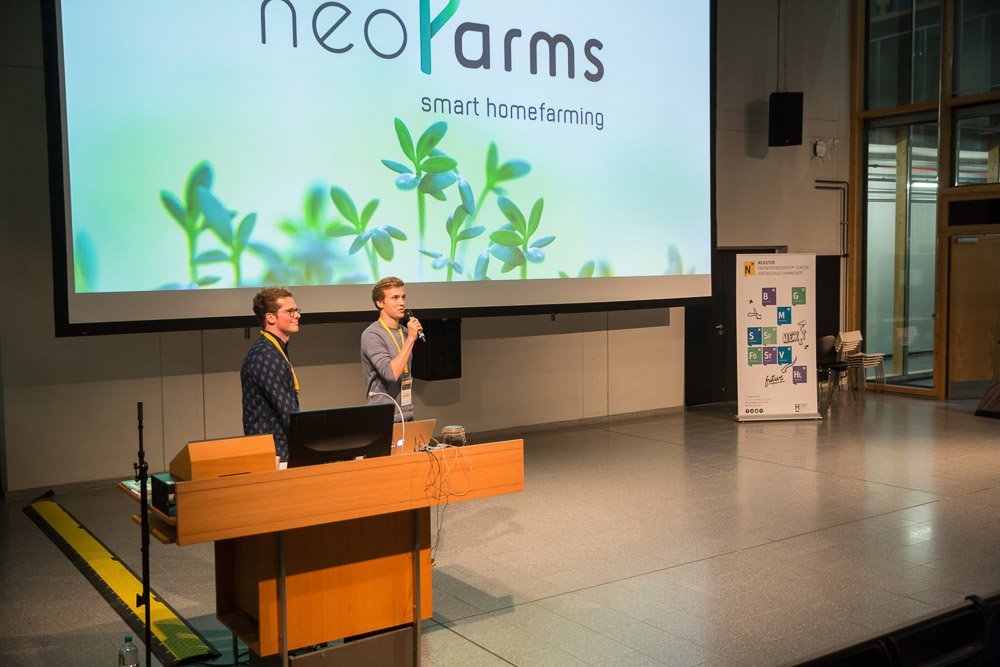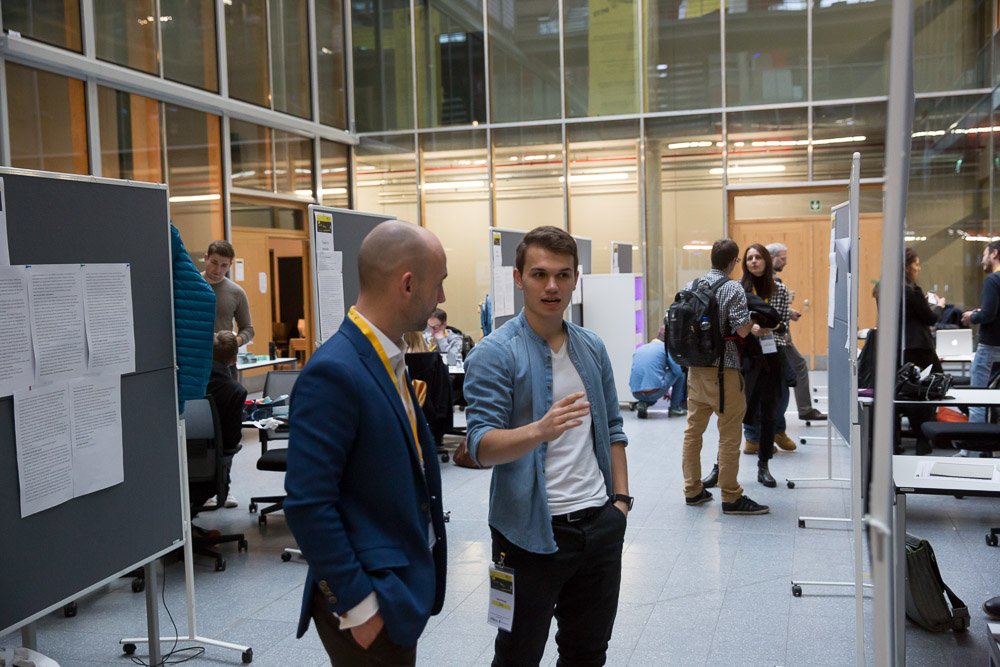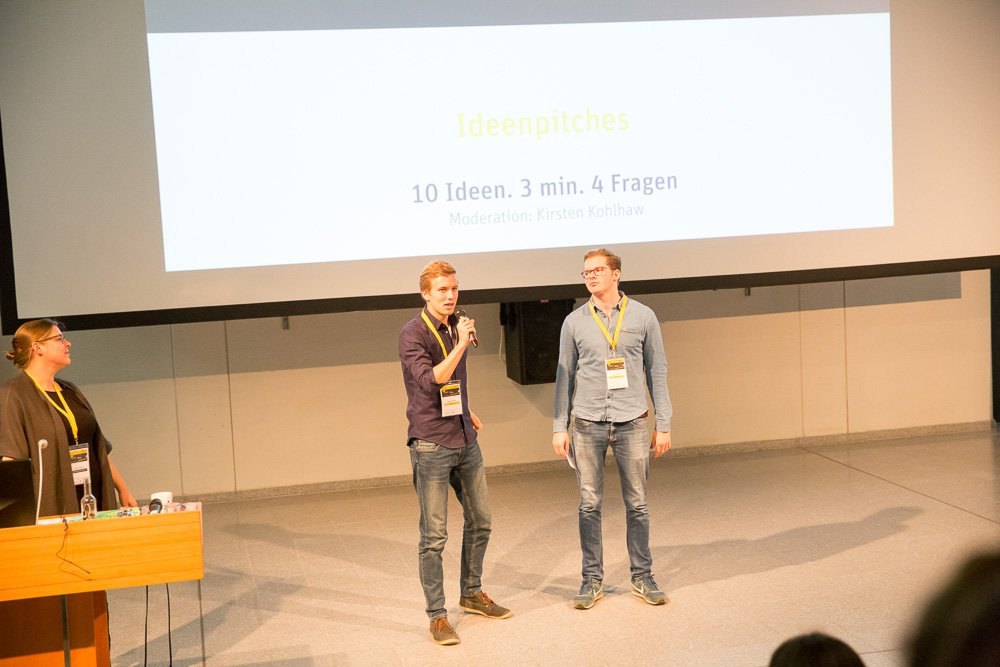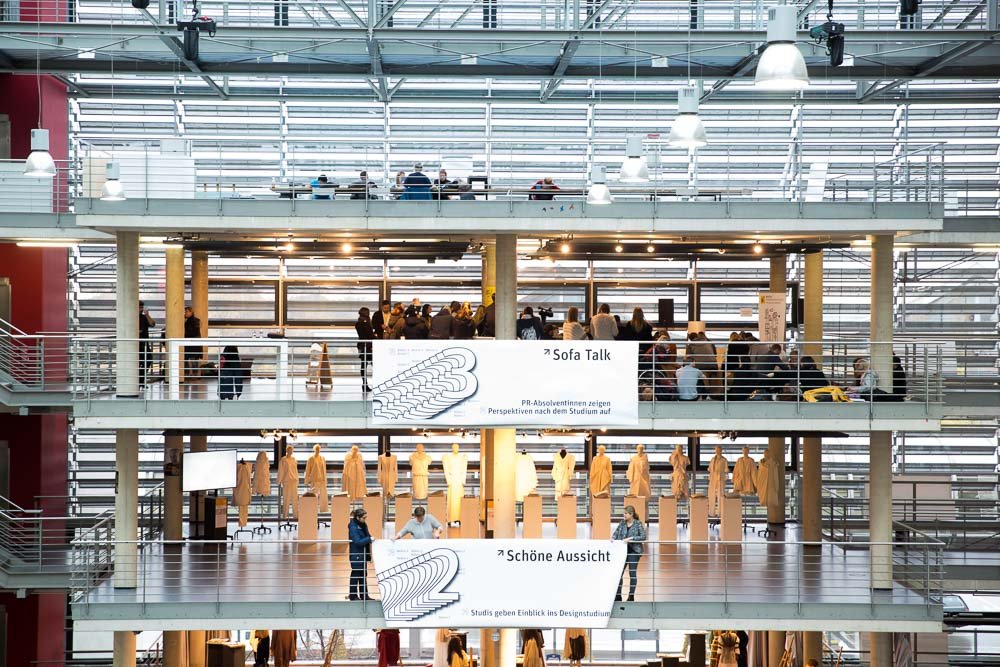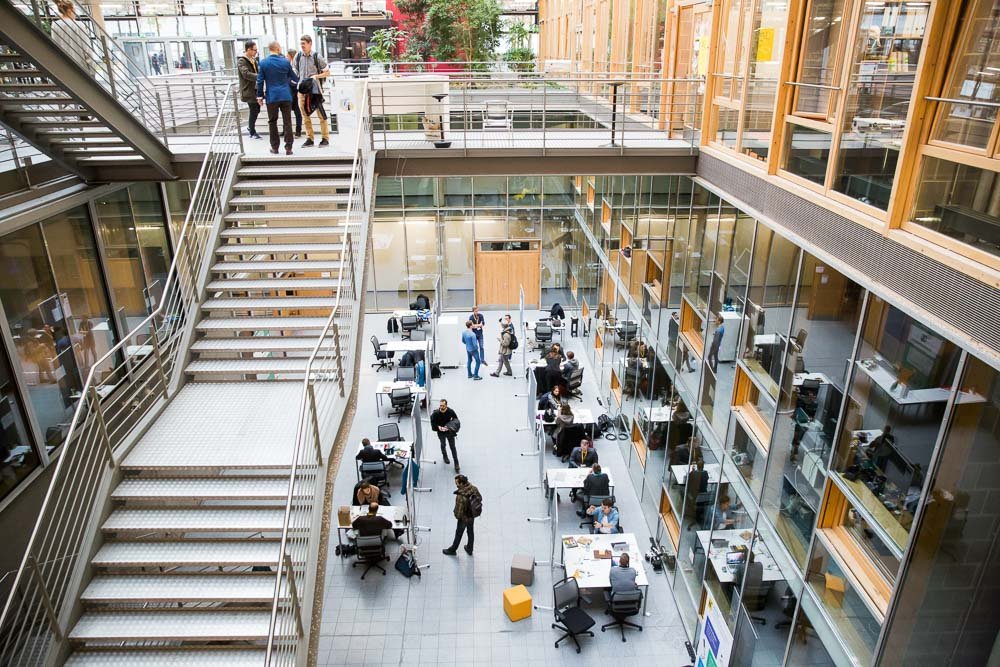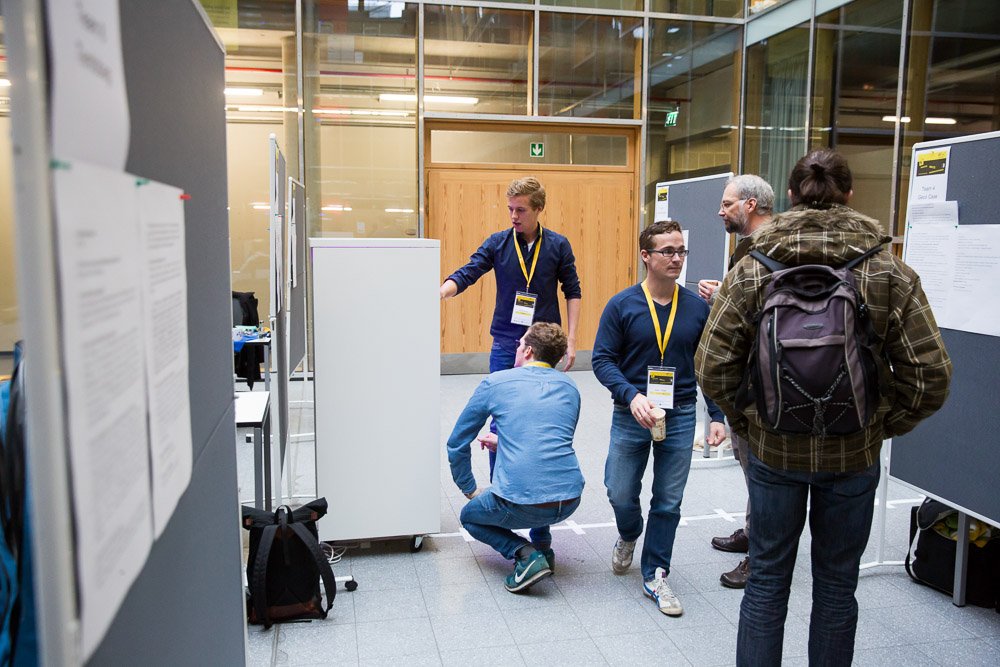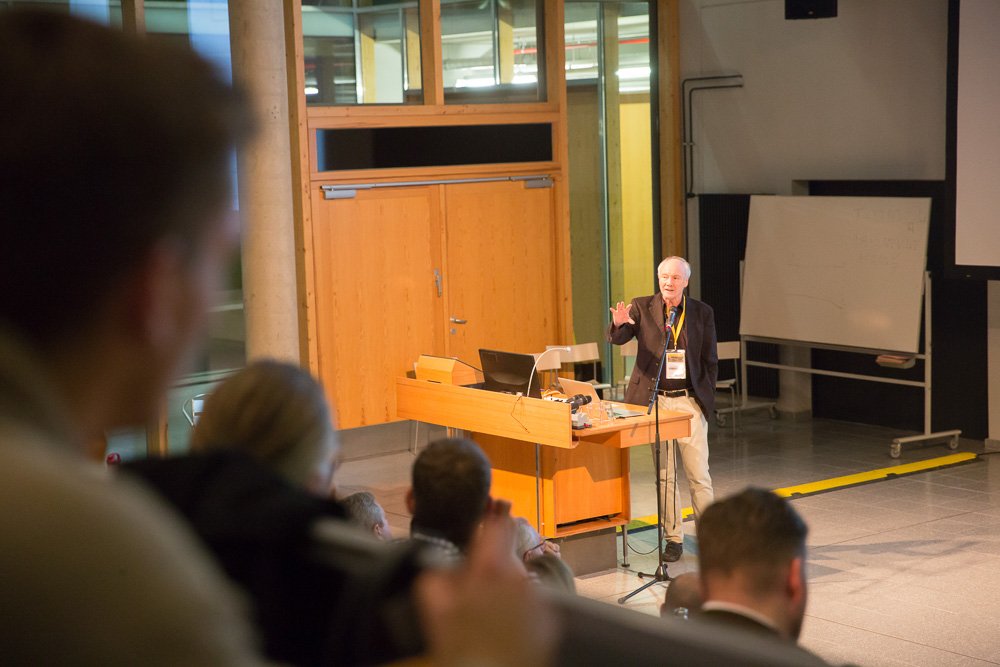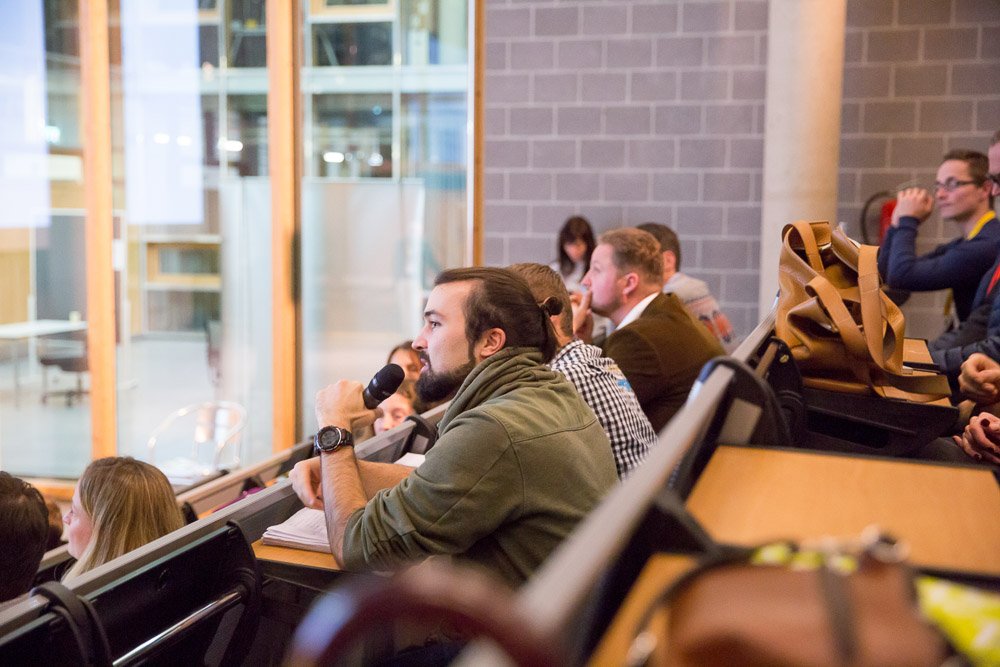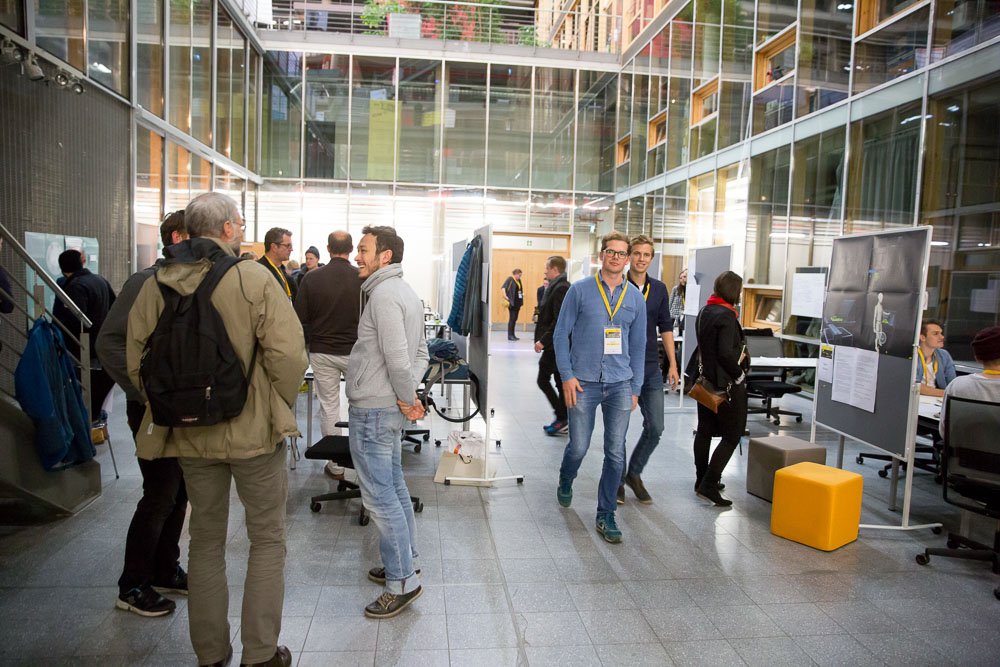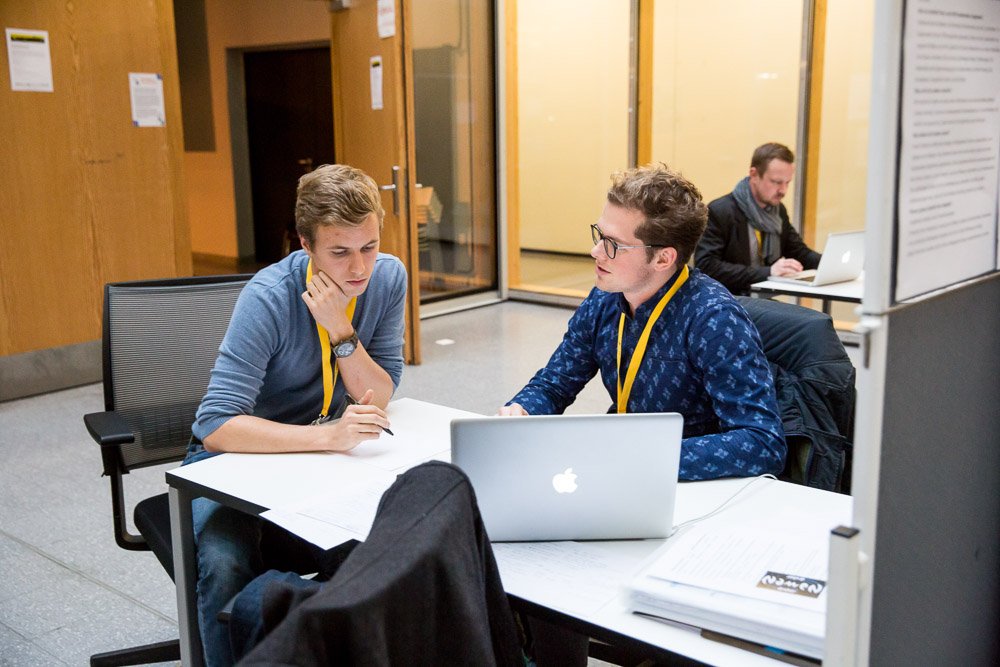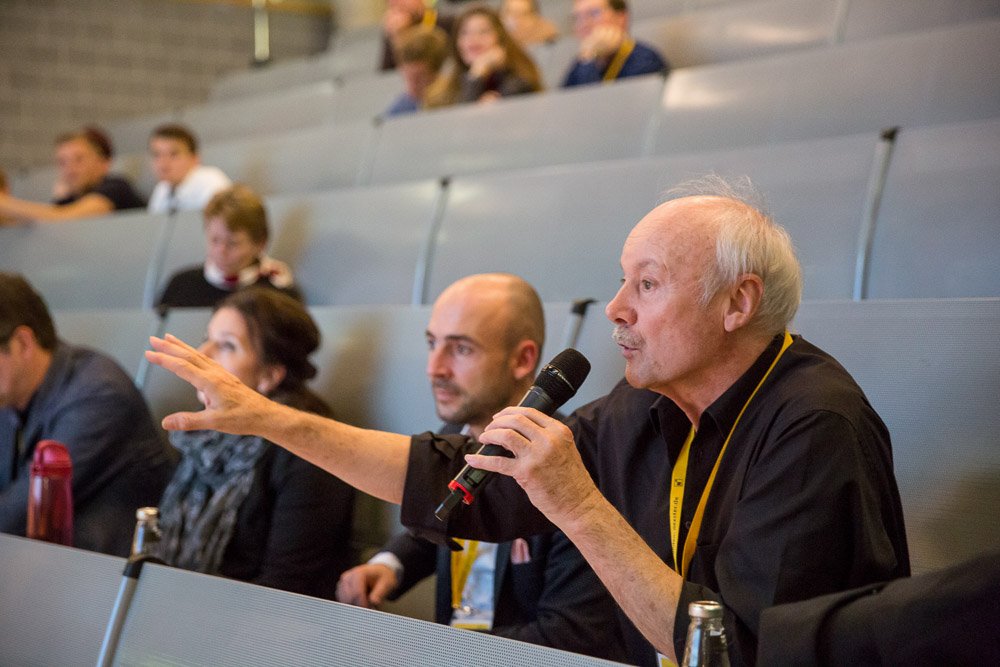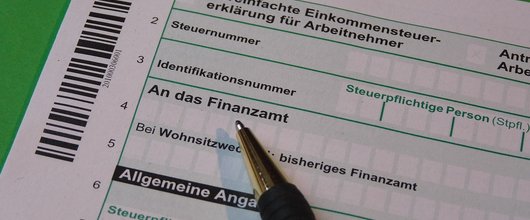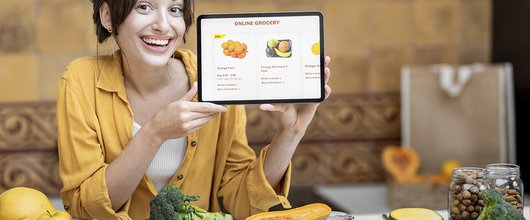English version
neoFarms – Fourth Place in Nexster Startup Competition
neoFarms is a concept by Henrik Jobczyk and Maximilian Richter. Henrik studied biotechnology at the Technical University Braunschweig, Max industrial design at the University of Applied Sciences and Arts in Hannover. Together they placed fourth at the Nexster startup competition in Hannover. The questions of what is behind neoFarms and how Henrik and Max achieved such a high rank are the topics of this article.
Concept conceived during a study assignment
During his studies Henrik was given the task of developing an innovative product. Because of his affinity towards healthy nutrition, his studies in biotechnology, and his awareness of how difficult it is to find nutritious and certified contaminant-free vegetables in a city, he developed the basic concept. The result was a plant box, which can be used to grow vegetables, sprouts, and herbs until full harvest maturity using an almost fully automated process – entirely without soil, profound knowledge of plants, or tedious weeding.
What is neoFarms?
neoFarms is a cultivation and harvest cabinet, where vegetable crops grow from seed to harvest. In other words, a fully automated mini-greenhouse for private households. The cabinet looks like a refrigerator, is of similar size, and has a large transparent door. The plants are visible from the outside, so that users can observe the progress at any time. The cabinet has several drawers, which hold the plants.
The system of Henrik and Max makes use of „aeroponics”, a technology developed by NASA. In this system plants do not need soil, as the roots dangle in midair. They are moistened by a controlled system supplying the needed nutrients. The stem, the part that connects the root to the shoot, rests in a plug. This gives the plant support, and allows the edible parts of the plant to develop undisturbed. Contrary to hydroculture systems, which require large amounts of water, this method allows for a vertical construction of the system and as such provides an area of cultivation that is four times larger.
The plant cabinet provides optimal conditions: temperature, light, nutrients – everything is kept at the perfect level. Users simply have to wait and will be able to enjoy fresh salads and herbs at the time of harvest. Removing yellow leaves or other small interventions are the only manual tasks required, and they are very manageable.
This is how the concept learned to walk – and how it is currently starting to sprint
Although Henrik and Max cannot be considered lifelong friends, they appear to have known each other forever. They randomly met in 2015 through mutual contacts, started talking, and Henrik introduced his concept to Max. Within only a short period of time they decided to “give it a try”. Their skills complement each other’s perfectly. Henrik knows what plants need and is familiar with the “aeroponics” system taken from the industry, and Max brings the technical and creative know-how required for the development of the product.
Well, we would be inclined to say that the attempt was successful – the Nexster nomination came as no surprise. neoFarms at its core has a lot of assets needed for a coherent entrepreneurial design. For example, neoFarms combines existing components, procedures, and features in an innovative way to create an entirely new product with real added value. Max and Henrik place value on sustainability and conservation of resources. They use a reusable cartridge system for the necessary nutrient cartridges and LEDs to reduce energy usage. And that’s not all. The milestones they have achieved so far are truly remarkable:
- In July of 2016, neoFarms wins a prize in the „drei|V" idea competition.
- In October, Max and Henrik manufacture the first prototype.
- Also in October, the founding team qualifies for the Startupbootcamp FoodTech 2016
- In November of 2016, neoFarms places 4th in the Nexster startup competition in Hannover.
- At the end of November, the Neofarms Gmbh (LLC) is founded.
- They are currently participating in the acceleration program of the Startupbootcamp FoodTech in Rome
On the road to success at high speed? That’s neoFarms’ goal
neoFarms is setting their sights on city dwellers that do not have a garden, but want to eat consciously. At the same time, neoFarms targets users that are wary of the food industry and are looking for transparent information regarding the origin and production of their food. With the introduction of the plant cabinet, neoFarms solves several problems of their target group and offers several advantages:
- Users get food that is guaranteed to be free of pesticides.
- They know exactly how the food is produced, are aware of the growth and nutrition conditions: pesticides are no longer a concern.
- Vegetables have the highest possible vitamin and nutritional content, as they are harvested immediately before consumption. It does not get any fresher.
- Users have their own fresh food counter at home. Available any time, stocked with whatever they want.
- There is no need to drive to get fresh food, and you are no longer tied to opening hours.
- Users can start immediately and harvest their first herbs and lettuce leaves within a few days.
- No knowledge of plants, no soil, and no other special abilities are needed.
- The system can be controlled by an app, which also offers tutorials, recipes, a community, and a channel for ordering nutrients, seeds, plants, and accessories.
The vision is to have the neoFarms plant cabinet available in individual sizes as a built-in or an attractive stand-alone module. To finally reach the homes of their target audience Max and Henrik still have to go a long way.
Revenue will be generated through the sale of integrated systems and extension modules. In addition, there will be continuous reorders, such as for plants, seeds, or nutrient solutions. A licensing model is planned as well, but that will be at some point in the future.
Components that can help neoFarms
Henrik and Max have done a lot of things right already, as the successes of their short company history proof. Both are currently working full time with neoFarms: Max is writing his bachelor thesis on the topic. Henrik is also focused on his brain child. In order not to get bogged down and get consumed by the time commitment towards their business in the long run, a short pause is recommended. It is worth dissecting the concept under the microscope to find out which components should be included.
The acquisition/sales component could actively support the founders starting in 2018 – that is when the founding team is planning to achieve market maturity. The eOffice could ensure continuous availability, and the accounting component allows for outsourcing large parts of the dreaded administrative tasks. And those are just the areas that jump out at first glance.
Looking ahead at a promising future
The Starupbootcamp FoodTech in Rome is still underway; Henrik and Maximilian are looking for a committed investor with the appropriate skills. They have to further develop their prototype and realize their plans to turn them into actual steps and results. If they succeed, then they plan to conquer the market with their professional product mid/end of 2018 and enter European and maybe even American homes.
They have the vision as well as the energy. Now it is important to stay on the ball and show flexibility. Not an easy task, but definitely one of the most exciting phases in their young entrepreneurial lives. We are keeping our fingers crossed and wish them good luck!
